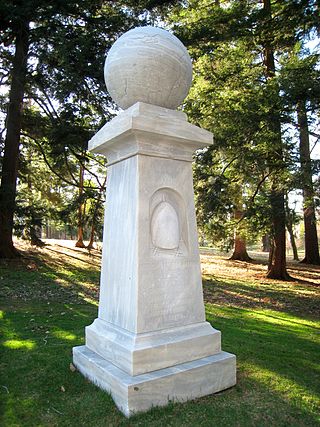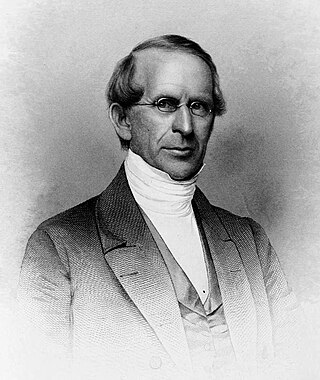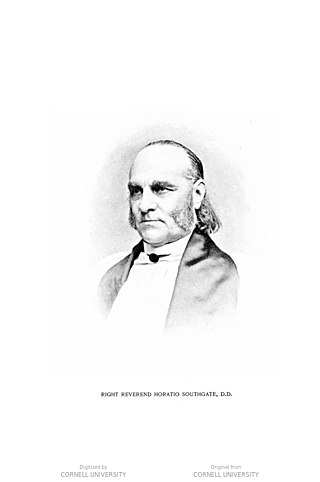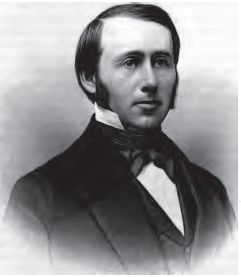Related Research Articles

Alexander was King of Greece from 11 June 1917 until his death in 1920.

The Areopagus is a prominent rock outcropping located northwest of the Acropolis in Athens, Greece. Its English name is the Late Latin composite form of the Greek name Areios Pagos, translated "Hill of Ares". The name Areopagus also referred, in classical times, to the Athenian governing council, later restricted to the Athenian judicial council or court that tried cases of deliberate homicide, wounding and religious matters, as well as cases involving arson of olive trees, because they convened in this location. The war god Ares was supposed to have been tried by the other gods on the Areopagus for the murder of Poseidon's son Halirrhothius.

Adoniram Judson was an American Congregationalist and later Particular Baptist missionary, who worked in Burma for almost forty years. At the age of 25, Judson was sent from North America to preach in Burma. His mission and work with Luther Rice led to the formation of the first Baptist association in America to support missionaries.

Athens is one of the oldest named cities in the world, having been continuously inhabited for perhaps 5,000 years. Situated in southern Europe, Athens became the leading city of Ancient Greece in the first millennium BC, and its cultural achievements during the 5th century BC laid the foundations of Western civilization.

Andover Theological Seminary (1807–1965) was a Congregationalist seminary founded in 1807 and originally located in Andover, Massachusetts on the campus of Phillips Academy.

The American Board of Commissioners for Foreign Missions (ABCFM) was among the first American Christian missionary organizations. It was created in 1810 by recent graduates of Williams College. In the 19th century it was the largest and most important of American missionary organizations and consisted of participants from Protestant Reformed traditions such as Presbyterians, Congregationalists, and German Reformed churches.

Princess Aspasia of Greece and Denmark was a Greek aristocrat who became the wife of Alexander I, King of Greece. Due to the controversy over her marriage, she was styled Madame Manou instead of "Queen Aspasia", until recognized as Princess Aspasia of Greece and Denmark after Alexander's death and the restoration of King Constantine I, on 10 September 1922. Through her marriage, she and her descendants were the only ethnically Greek members of the Greek royal family, which originated in Denmark.

Hiram Bingham, formally Hiram Bingham I, was leader of the first group of American Protestant missionaries to introduce Christianity to the Hawaiian islands. Like most of the missionaries, he was from New England.

Moses B. Stuart was an American biblical scholar.

Rufus Anderson was an American minister who spent several decades organizing overseas missions.

Edward Robinson was an American biblical scholar known for his magnum opus, Biblical Researches in Palestine, the first major work in Biblical Geography and Biblical Archaeology, which earned him the epithets "Father of Biblical Geography" and "Founder of Modern Palestinology."
Ephialtes was an ancient Athenian politician and an early leader of the democratic movement there. In the late 460s BC, he oversaw reforms that diminished the power of the Areopagus, a traditional bastion of conservatism, and which are considered by many modern historians to mark the beginning of the radical democracy for which Athens would become famous. These powers included the scrutiny and control of office holders, and the judicial functions in state trials. He reduced the property qualifications for holding a public office, and created a new definition of citizenship. Ephialtes, however, would not live to participate in this new form of government for long. In 461 BC, he was assassinated, probably at the instigation of resentful oligarchs, and the political leadership of Athens passed to his deputy, Pericles.
Andover Newton Theological School (ANTS) was a graduate school and seminary in Newton, Massachusetts, affiliated with the American Baptist Churches USA and the United Church of Christ. It was the product of a merger between Andover Theological Seminary and Newton Theological Institution. In recent years, it was an official open and affirming seminary, meaning that it was open to students of same-sex attraction or transgender orientation and generally advocated for tolerance of it in church and society.

Horatio Southgate was born in Portland, Maine, and studied for the ordained ministry at Andover Theological Seminary as a Congregationalist. In 1834 he became a member of the Episcopal Church in the United States of America, and was subsequently ordained to the diaconate in 1835. He was ordained to the priesthood in 1839 after an unusually long period as a deacon in this period of Anglican history, and also completed post-graduate studies at Columbia College, earning a Doctorate of Divinity degree in 1845.

George Henry Atkinson was an American missionary and educator in what would become the state of Oregon. In Oregon, he served as a pastor for several churches, helped found what would become Pacific University, and pushed for legislation to create a public school system in Oregon Territory. The Massachusetts native later served as the county schools superintendent in Clackamas County and Multnomah counties.

John Taylor Jones was an American missionary, and one of the earliest Protestant missionary to Siam with his wife, Eliza Grew Jones. He is credited with introducing to Siam the modern world map, and producing a translation of the New Testament in Siamese (Thai) from Greek.

Samuel Chenery Damon was a missionary to Hawaii, pastor of the Seamen's Bethel Church, chaplain of the Honolulu American Seamen's Friend Society and editor of the monthly newspaper The Friend.

Theoklitos Farmakidis was a Greek scholar and journalist. He was a notable figure of the Modern Greek Enlightenment.
This is a timeline of the presence of Eastern Orthodoxy in Greece from 1821 to 1924. The history of Greece traditionally encompasses the study of the Greek people, the areas they ruled historically, as well as the territory now composing the modern state of Greece.
Gregory Anthony Perdicaris was a Greek American statesman, lawyer, professor, author, and entrepreneur. Perdicaris raised awareness about Greece in the United States during the Greek War of Independence and was in Greece during the critical early years. He was the first Consul of the United States for Greece. He is known for incorporating dozens of companies in the United States. Perdicaris and partners built the municipal framework for gas and electric companies. He was associated with Dewing v. Perdicaries, 96 U.S. 193 (1877), the Supreme Court case dealing with Confederate Sequestration. He was a prominent resident of Trenton, New Jersey.
References
- This article incorporates text from a publication now in the public domain : Wilson, J. G.; Fiske, J., eds. (1892). . Appletons' Cyclopædia of American Biography . New York: D. Appleton. This work in turn cites
- Life of Jonas King by F. E. H. H. (New York, 1879).